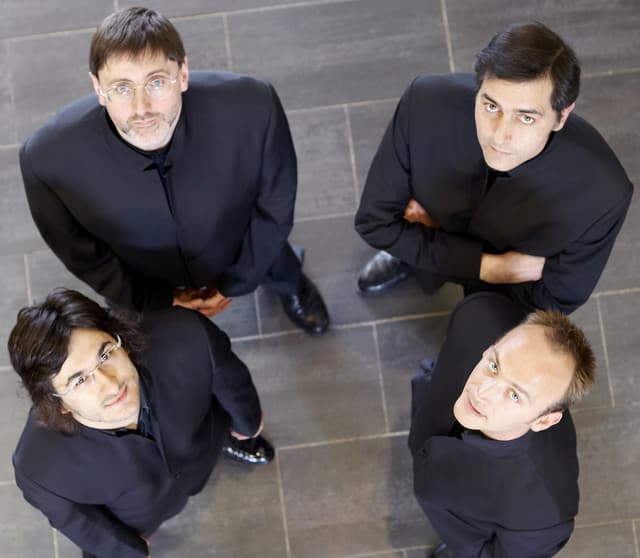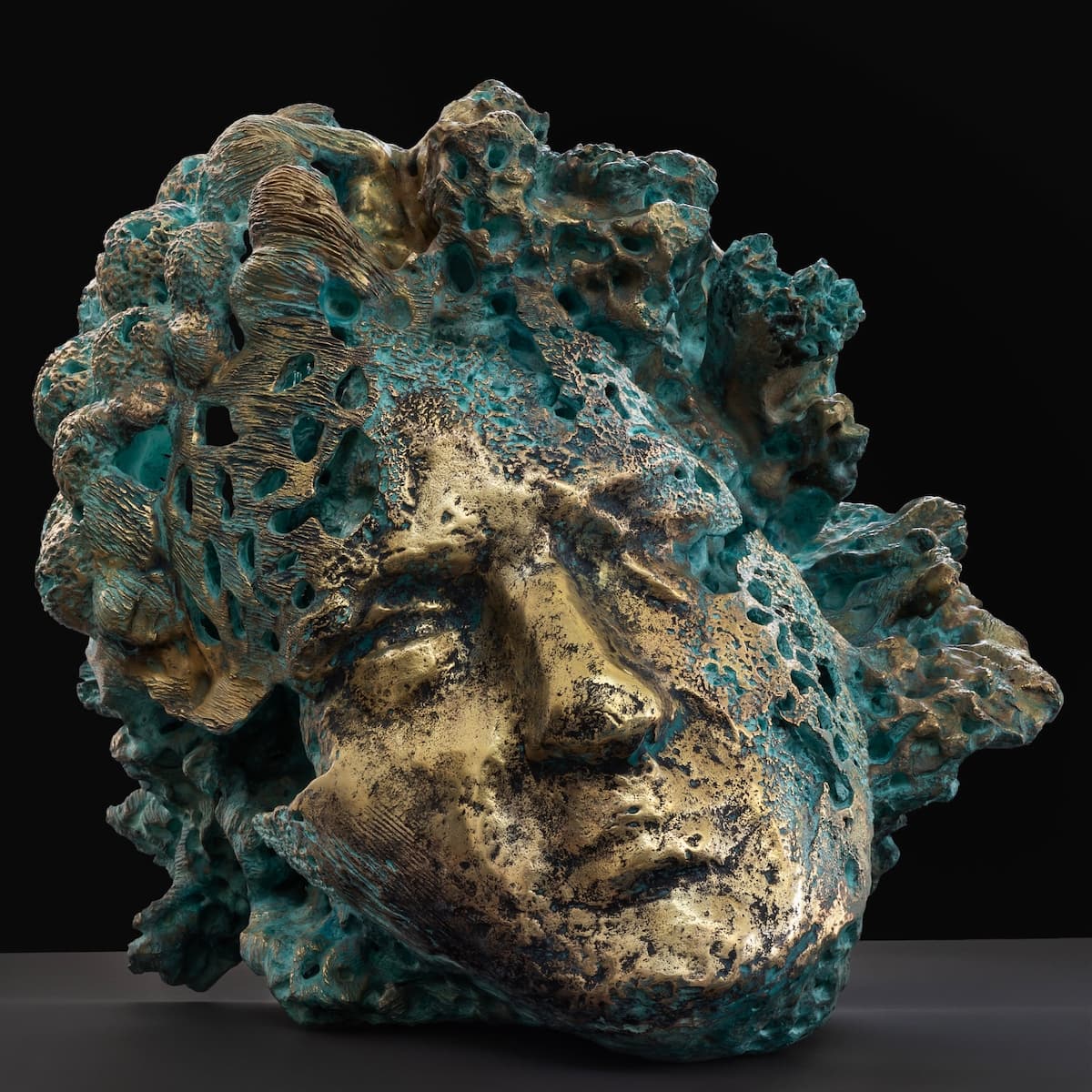The album Licht in der Nacht by mezzo-soprano Coline Dutilleul and American pianist Kunal Lahiry is described as being ‘from the roots of modern music (1896–1914)’. It starts with French Impressionism and ends with German Expressionism (and the start of the World Wars). What do they have in common besides being inspired by painting and their ‘voluptuous and almost decadent sensuality’?
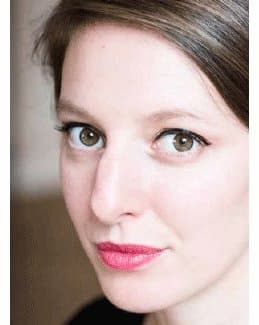
Coline Dutilleul
We spoke with Coline Dutilleul and she takes the title as one of the indicators: light and shadow. The recording alternates German (Schoenberg) with French (Debussy), Zemlinsky with Ravel, Nadia Boulanger with Alma Mahler, and then Lili and Nadia Boulanger with Alban Berg. Where Debussy, Ravel, and the Boulangers represent French Impressionism in music, Schoenberg, Alma Mahler, and Alban Berg take up the reins of German Expressionism.

Kunal Lahiry (photo by Álfheiður Erla Guðmundsdóttir)
Music is changing at this time: tonality is being expanded as much as world view. New concepts of sound and harmonic colour result in new sounds and musical images.
We spoke with Coline Dutilleul about this album, and she said it was a kind of musical autobiography. Coming from Belgium, she felt on the cusp of so many influences, particularly French and German. That particular mix of nationalities and languages means that she can look at genres that outsiders might think quite separate and see the commonalities.
Dutilleul sees more connections than differences between French Impressionism and German Expressionism. They colour her vision of the world and provide emotional doors to the past. Her choice of composers is worth commenting on – Schoenberg and Debussy and Ravel we can understand, Zemlinsky and Alban Berg as Schoenberg’s teacher and student also make sense. It’s her extensions to composers not generally grouped with those men that are inspired. Nadia and her rarely recorded sister Lili paired with Alma Mahler and Berg make us hear all these composers, men and women, differently.
For Dutilleul, Alma Mahler is a very special composer – she’s best known as the music for composers and painters, often cast as the destroyer in their relationships. Yet she was a strong woman who could hold her own in the middle of powerful men. Her songs are not the songs of her husband Gustav Mahler but have their own voice. They can be dark; they don’t fight death but ask you to make death your friend. Her harmonies drive you to feel the emotion behind the music. This is post-Romanticism at its best.
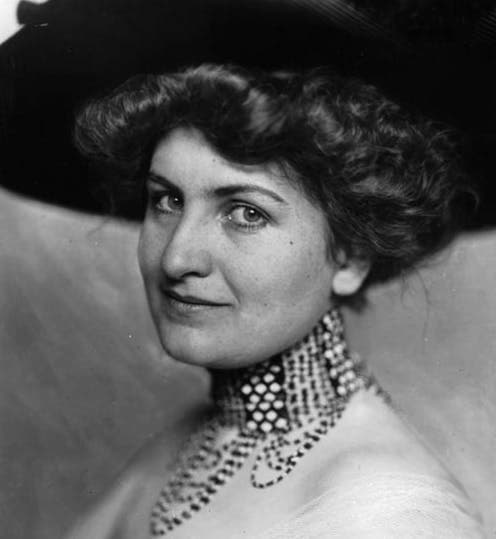
Alma Mahler
Alma Mahler: Fünf Lieder – I. Die Stille Stadt
Dutilleul’s German is sung beautifully and then, when she switches to French, we have a very differently coloured world.
Claude Debussy: Trois chansons de Bilitis – I. La Flûte de Pan
The colours shimmer, the shadows have more depth, and the despair or happiness has a greater range.
Two works for solo piano are included; Alexander Zemlinsky’s Fantasie über Gedichte von Richard Dehmal, Op. 9, based on his poem ‘Stimme des Abends’. In Dehmel’s poem, Voice of the Evening, there’s the evocative line ‘Dir ist, als hörst du | die Nebel steigen’ (You feel like you’re hearing the mists rise), which seems to be its own summoning of the French impressionist vision. The other piano work is Lili Boulanger’s D’un vieux jardin from 1913, much in keeping with the dark themes on the recording. In the hands of pianist Kunal Lahiry, the piano works match the dark/light feeling of the entire recording.
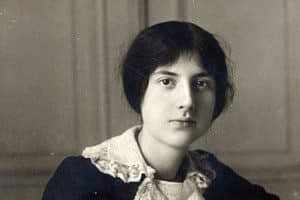
Lili Boulanger
Lili Boulanger: D’un vieux jardin
The recording closes with Alban Berg’s Vier Lieder, op. 2, from 1910. The last song, Warm die Lüfte by Alfred Mombert, has a sickly girl standing under a tree, waiting for her love, the air is warm melting the snow and the nightingale is singing, but he doesn’t come, and she dies, alone in the gloomy mountain forest. It’s dark and forbidding, yet with a love, even a broken love, at its core.
The post-Romantic creations in France and Germany were the signal for the new century: death awaits, nothing is as it appears, and yet there’s a hidden core of feeling. Coline Dutilleul and her pianist Kunal Lahiry inhabit this world comfortably. They find a way of telling the story, revealing what lies behind the coded words of the poetry.
For more of the best in classical music, sign up to our E-Newsletter

